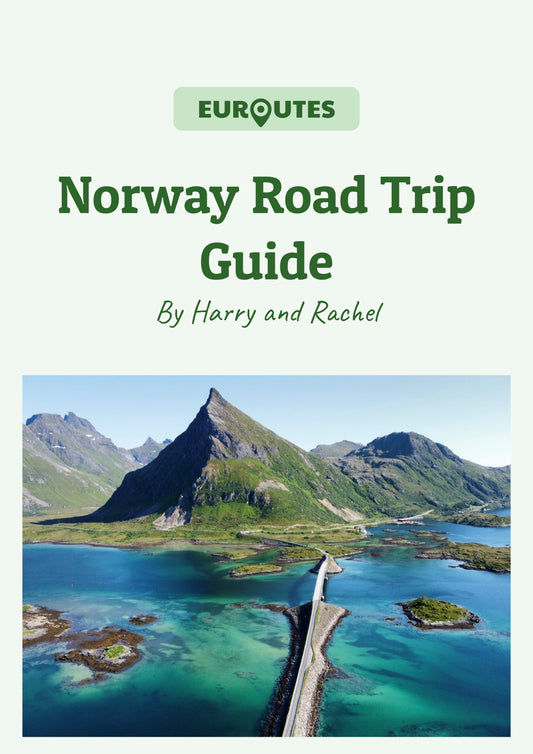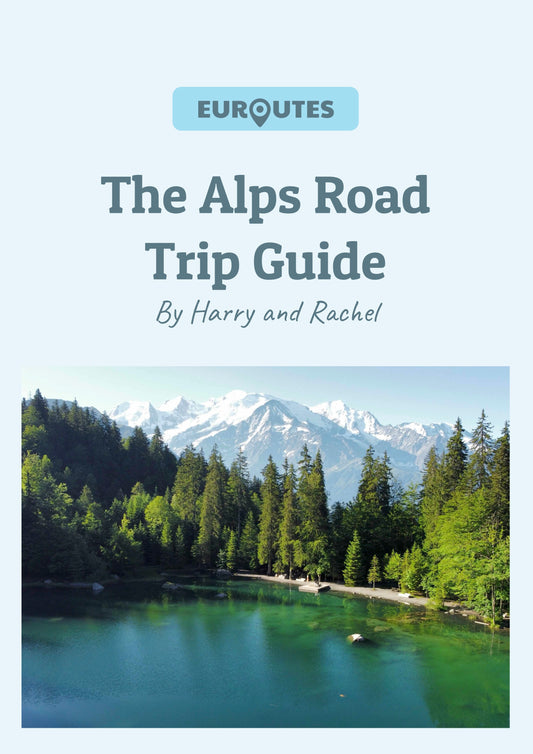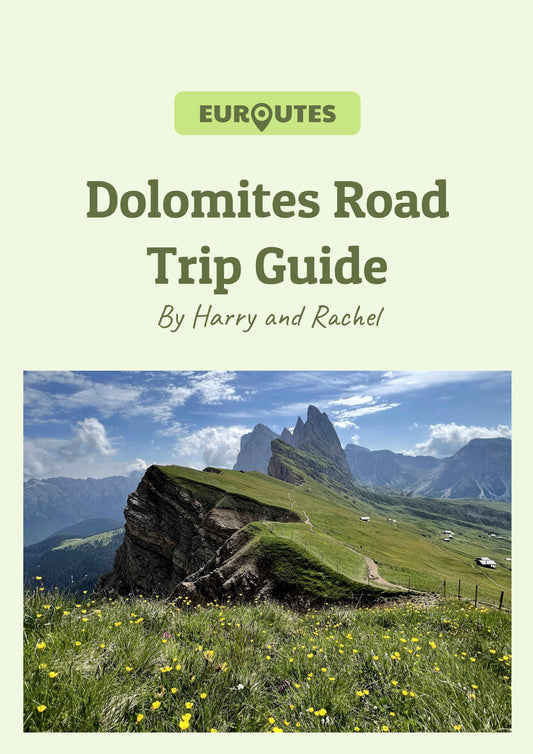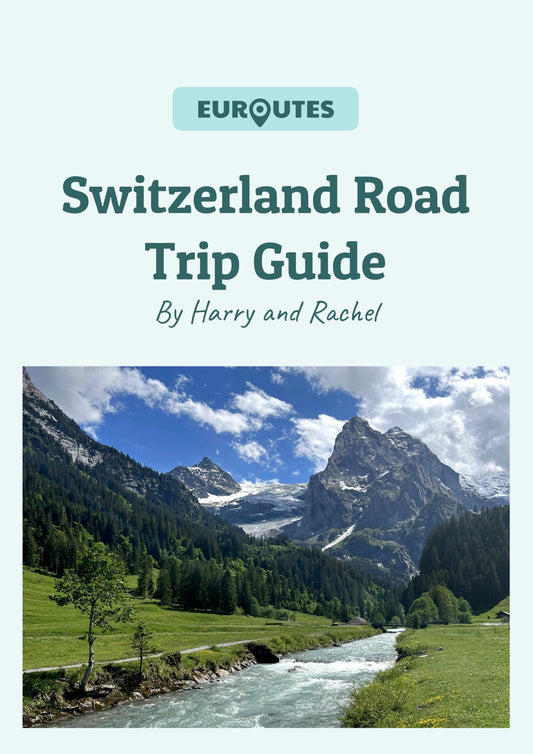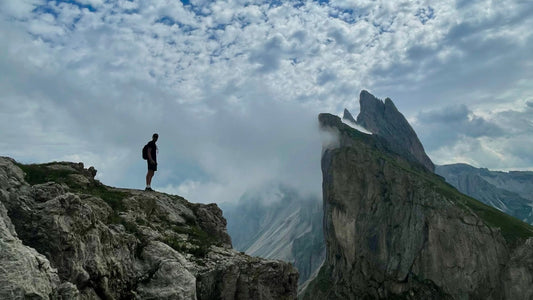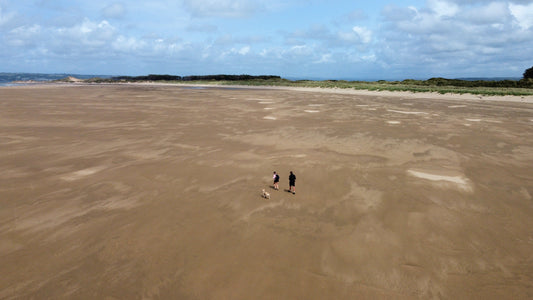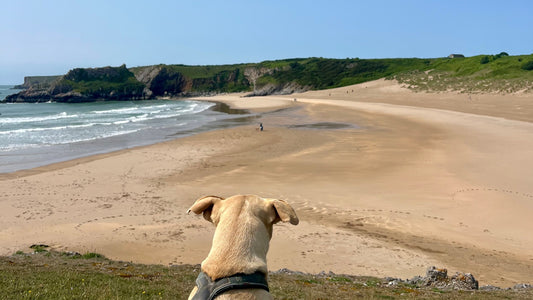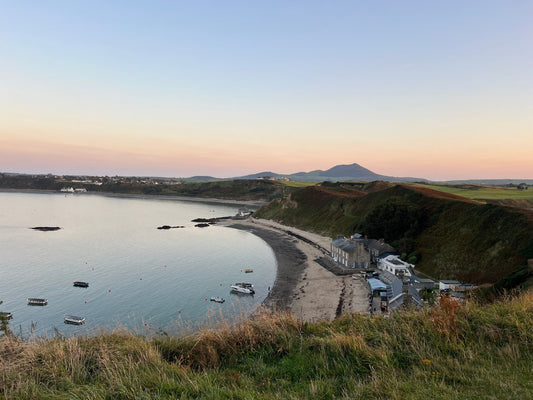
12 Essential Things to Know Before You Road Trip Morocco
A road trip in Morocco requires more thought than a European road trip, a new continent and a different culture to prepare for. In this blog we’ll share everything you need to know before you go. 🇲🇦
The basics of a Moroccan road trip
1. Getting to Morocco by road
Morocco is easily reached from Spain or France. The main ferry route from Algeciras or Tangier to Tanger Med costs around £270 and is about 1h30. As Morocco is an African country, you will have to pass border and custom checks, but we’ll get to those details later in the guide.
It’s also possible to get a ferry from Barcelona, Spain or from Montpellier, France, though these are longer ferries. If you are only road tripping Morocco, this might be the best option for you to get there with less driving.
If you're driving from the UK and you want to know the best options for getting from the UK - Europe. Read our blog below.
👉 A guide to driving from the UK to Europe
2. Currency in Morocco
You can only get Moroccan Dirhams when in Morocco. We found the withdrawal fee at cashpoints was a blanket fee no matter how much money we were withdrawing. Get cash out as soon as possible because you will need cash for everything!
3. Languages spoken in Morocco
Something that can be a little confusing in Morocco is the language. The main languages spoken are Arabic, Amazigh (Berber) and French. Therefore, it can be hard to know which to use when you meet someone. Below are some Arabic words that will help you understand locals and you can make an effort back!
Salam alaykum - Hello
Shukran - Thank you
Marhaba - Welcome
If you're planning a Morocco road trip, we really recommend learning a few basic words because it shows you're making an effort back!


Cultural considerations in Morocco
4. Mosques
In Morocco, it is illegal to visit a mosque if you are a non-Muslim person. You can still view them from outside and admire the architecture and exterior but you will not be allowed inside.
There are two mosques that are an exception to this rule and you will be allowed inside even if you are not Muslim. These are Hassan ll Mosque in Casablanca and Tinmal Mosque in Marrakesh. If visiting either of these mosques you will need to ensure that you are dressed appropriately.
Casablanca is not a usual a stop on tourists Morocco road trip as it is a pretty modern city, most people who do visit only visit to see the mosque, so keep that in mind if you're thinking of visiting.
5. Alcohol
Although you might think you can’t get alcohol in Morocco due to religion. You can buy it in big supermarkets, there is usually a separate area of the store often called the ‘cave’ where you can buy alcohol. There are also specific corner shops that sell alcohol, but it can be very expensive
It’s worth mentioning that in our experience, a lot of men asked for a beer instead of money when trying to sell you something, so if you don’t want to give alcohol then be clear from the start that you don’t have any.
When preparing for your Morocco road trip in Europe, you might want to stock up on alcohol and a few other food items if you think you might miss them!
6. Ramadan
Another thing to consider when planning a road trip in Morocco is Ramadan, a time of year observed by Muslims worldwide as a month of fasting, prayer, reflection, and community. This is usually in March but the dates vary each year.
Some things to consider throughout the month;
- you might struggle to find restaurants open during the day
- some restaurants and large stores are open from 6pm - 1am
- you will find stores are not open in the morning but they do open in the afternoon
- out of respect, it’s better not to eat, smoke or drink in public
- you are likely to be invited by locals to join their friends and family when they break the fast.

Planning a Morocco road trip?
Embark on an epic road trip through Morocco with a route pre-planned for you and map full of must-see places!
Price: £13.99
Shop now7. Women’s clothing
Many women we saw in Morocco wore a hijab, although it is not enforced by law there. In the cities, you will definitely see more women without a headscarf than in rural areas and some people who are dressed similarly to European countries, especially younger individuals. However, most of these people were still dressed conservatively. We visited in February so it’s hard to distinguish whether people were covered up as it was the winter (cold for them) or for religious reasons.
Personally, I (Rachel) preferred to dress conservatively in Morocco to respect the culture. Even in February, it was pretty warm weather so lightweight clothes are ideal. Here are some ideas:
- maxi dresses or skirts
- linen trousers or lightweight loose fitting trousers
- jeans
- jumpsuits
- linen or lightweight shirts
- light cardigans
- t-shirts
8. Mens clothing
As we mentioned before many of the men we saw in Morocco were wearing the traditional djellebas. However, it seemed that Nike tracksuits were also pretty popular, especially with the younger males. In February, Harry was a classic British tourist and probably the only person about in shorts.
Moroccan men don’t tend to wear shorts, but it is not a problem to be wearing them. If you visit any religious buildings though, you need to cover up both shoulders and knees.
9. Haggling
Haggling is part of the Moroccan culture and chances are if you want to buy any souvenirs, you will have to haggle. Usually, it is best to use your judgement based on how much they suggest as a first price. They won’t be offended if you offer too low, they will simply suggest a higher price.
We also found ourselves swapping beer and wine for a lovely handmade rug, so it’s not always money that can get you beautiful things. Alcohol is expensive in Morocco so it has a high value to them. We swapped 2 beers and a bottle of wine for a rug that he was initially asking 800 MAD for!


10. Stray animals
Morocco is a country with many stray cats and dogs. In our experience, the locals seem to tolerate the cats much more than the dogs.
While some of the stray dogs will approach you, a lot of the dogs in Morocco are very afraid of humans. We had several occasions where we tried to feed them and they were so scared they ran away.
We’ve travelled to many countries with stray animals, and the dogs in Morocco seemed like some in the worst conditions. If you are animal lovers like us, you should be prepared that it might upset you to see some of their conditions.
Planning to take your dog with you to Morocco? Read our blog about travelling to Morocco with a dog.
👉 Travelling to Morocco with a dog
11. Begging
You will almost certainly come across begging in Morocco and it’s pretty common to have children asking for money, food and footballs.
Officials would advise against giving children money when begging as it can mean their families view it as a lucrative business and children will get stuck in this way of making money. If you would like to understand more, we would recommend reading up on this.
However, biscuits, sweets, pencils, games, footballs, notebooks can be nice things to give to children as they will be more likely to use it themselves. Some people will say that children still try to sell these items, so it’s really up to you to use your discretion.
12. Vendors
Apart from agriculture, tourism is one of the biggest sources of income in many areas of Morocco. As a result, you are going to come across many ‘entrepreneurs’, from parking guards, to people wanting you to buy fossils and geodes, to men offering their wife to make you to tagine, you are going to be made a lot of offers!
There’s a lot to say about this. We are usually not people to buy souvenirs but we came back from Morocco laden with everything from geodes, to fossils to rugs and ceramics.
Our advice would be that if you are not interested in buying something, then be clear from the start. You don’t need to be rude and you can still take the time to look and chat to them, but make it clear you’re not interested in buying something.
It can get a bit exhausting constantly being approached by a sales person but we tried to treat each person as a new interaction and give them the time of day.
Things to know for your Morocco road trip
So, there you go. We hope that by reading this blog you feel more prepared for your Moroccan road trip adventure.
